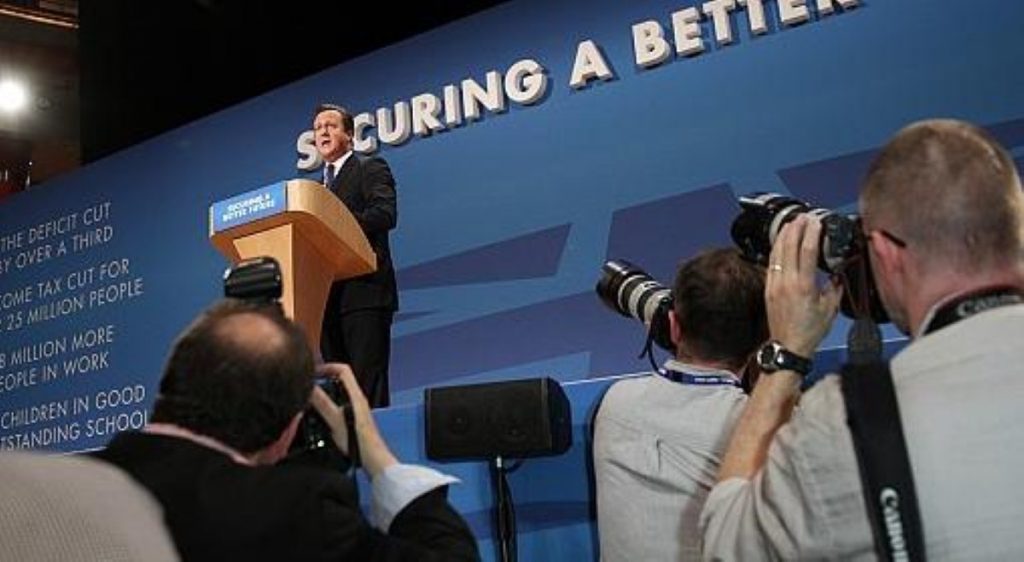Comment: Even a Cameron victory on Europe won’t save him
By Robert Ledger
Despite his best efforts, the prime minister is embroiled in an in/out debate over Europe. The opposition is in disarray and in the process of electing an unknown leader, but with only a slim majority the prime minister's outward confidence and control will be sorely tested. His party has been split for decades over Europe. Some suspect mischief-making is afoot. They believe renegotiation will be fudged and grand claims made for what are ultimately cosmetic changes.
Sound familiar? I'm actually talking about Harold Wilson in 1975 but the comparisons with David Cameron today are uncanny. Granted we can only take them so far. The EU today is larger and more complex than the European Community in 1975 and the issues that concern voters are somewhat different. In the 1970s, politicians were more concerned that European membership led to emigration rather than immigration.[1] And the support of the media and business cannot be taken for granted, as it was in 1975.
Margaret Thatcher, the then untried leader of the opposition, said during the 1975 campaign that Labour had called the referendum as "a tactical device to get over a split in their own party". Another Conservative politician, Chris Patten, later observed: "On the whole, governments only concede [referenda] when governments are weak." That was certainly the case for Harold Wilson in 1975 and, despite his recent election victory, it's also applicable to David Cameron.

Harold Wilson's gambit with a referendum on Europe failed to settle his party
He committed to a referendum in 2013 as pressure mounted from his eurosceptic flank and the rise of Ukip. Governing with a slim majority will become increasingly difficult if (or rather when) the eurosceptics start to rebel. Cameron is trying to avoid the fate of the Major government, which was paralysed by the issue. As a result the British people (and increasingly others in Europe) have had to spend much of the 1990s, as well as this current decade, paying far too much attention to the internal squabbles of the Conservative party.
There is certainly an increase in populist-led anti-EU feeling across the continent as a result of the contortions of the financial crisis. This has played into the hands of the eurosceptic right in the Tory party but whether it will be enough for the British people to vote against the status quo is another matter.

Europe has split the Tories for decades and is likely to do so again
Whatever the result of the referendum, and let's assume it ends similarly to 1975, the historical lessons for Cameron are stark. Wilson resigned only months after winning the 1975 poll, exhausted both by power and leading his unruly party. Wilson was ideologically-lite. His overarching objective was to keep Labour united. He probably felt he had achieved this when he left office, but in fact the opposite happened. Votes in referenda overwhelmingly go in favour of the status quo. This in turn can never pacify those who want change and means the device is only ever a temporary one. Take, for example, the Scottish vote on independence last year, or for that matter the European vote in 1975. After Wilson retired, the Labour left – the main anti-Europe bloc at that time – became increasingly vocal within the party ranks and by the early 1980s had caused a group from the right to form the breakaway, pro-European, Social Democratic party.
David Cameron may win a referendum over EU membership. But what might be hailed as masterful party management could follow Wilson's example and very quickly be seen as unprincipled, short-sighted and weak leadership. It's possible that even a Cameron victory would succeed only in delaying a split in his party.
Robert Ledger is a political researcher. His areas of interest are contemporary British and European politics and the history of ideas. He has a PhD in political science from Queen Mary University in London and is the editor of the next issue of the Journal of International Relations Research. Follow him on Twitter.
The opinions in Politics.co.uk's Comment and Analysis section are those of the author and are no reflection of the views of the website or its owners.





-01.png)